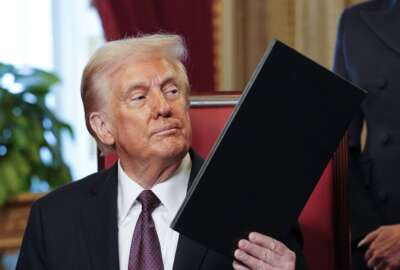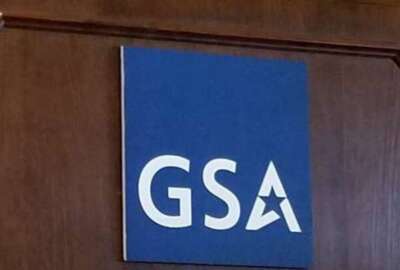Trump’s pick for top CIA lawyer calls for greater cyber, contractor scrutiny
President Donald Trump's pick to run the Central Intelligence Agency's legal department earned bipartisan support on Wednesday after promising to address the...
President Donald Trump’s pick to run the Central Intelligence Agency’s legal department earned bipartisan support on Wednesday after promising to address some of the cybersecurity concerns voiced by the intelligence community’s leadership.
The Senate Select Committee on Intelligence approved Courtney Simmons Elwood to serve as the CIA’s general counsel, a role that ranking member Mark Warner (D-Va.) said would uniquely position her at the “critical intersection between intelligence and policy-making.”
“The intelligence community needs to find ways to access the communications of our adversaries while protecting the privacy rights and American commercial ingenuity. I believe we cannot tie the hands of our technology leaders by unilaterally disarming them with possible security loopholes,” Warner said. “The rapid change of information technology enables significant sharing of classified information and we must work to find ways to have the appropriate level of sharing.”
Elwood, a partner with the law firm Kellogg, Hansen, Todd, Figel & Frederick, told lawmakers she would work with CIA Director Mike Pompeo and Director of National Intelligence Dan Coats in shoring up the intelligence community’s contractor workforce and addressing emerging cyber threats.
While a majority of senators’ questions addressed the committee’s ongoing investigation into possible Russian influence in November’s presidential election, Warner called on Elwood to push for more full-committee briefings from the CIA.
“The more we can get all the members read in on more activities I think the better,” Warner said.
Elwood assured Warner she would make sure that full committees are briefed “to the maximum extent possible,” while at the same time protecting exceptionally sensitive information. She also told Sen. Kamala Harris (D-Calif.) that she would serve as the agency’s transparency liaison to Congress.
“Sometimes things are legal, as you know, but unwise. and then with respect to ensuring that this committee is aware, I have a legal obligation … under the National Security Act, to make sure that this committee is informed of the legal basis that underpin any of the CIA’s intelligence activities, and I would fully and timely provide that legal basis,” Elwood told Harris. “Any time the committee requests information with respect to the legal basis, I have an obligation to respond.”
Former SSCI Chairwoman Sen. Dianne Feinstein (D-Calif.) questioned whether Elwood would seek to reduce the CIA’s reliance on contractors, in light of recent high-profile leaks from Edward Snowden and Hal Martin — both former Booz Allen Hamilton employees who worked for the National Security Agency.
“Government contractors are only supposed to be used if they are performing tasks that are not an inherent governmental function,” Feinstein said.
While serving as CIA director, Leon Panetta, who also served as defense secretary under President Barack Obama, had agreed to annual reductions of the contracting workforce. Elwood told Feinstein that she would consider further reductions of contractors.
“It does sound like a core government function to me, and I think you raise a very important issue with respect to the use of contractors,” she said.
Sen. James Lanford (R-Okla.) asked the general counsel nominee whether she would work with the committee in setting forth a “cyber doctrine” to codify how the intelligence community responds to cybersecurity threats — an issue recently raised by current and former CIA officials.
“Frankly, I think the United States government has not done nearly enough to protect our nation, our cyber infrastructure, all the things that are at risk from those threats,” Pompeo said April 14 during a panel at the Center for Strategic and International Studies.
Caroline Krass, the CIA’s former top lawyer, whom Elwood would be replacing, said cyber is the biggest and least addressed threat facing the intelligence community.
“I think the hardest [legal questions] were those that surrounded cyber,” Krass said on Tuesday at an event at Georgetown University Law School, as reported by Foreign Policy. “It’s an evolving area of the law, trying to determine answers to questions like what constitutes a use of force … what are the measures to combat such a use of force?”
Elwood told Lankford that she would look to Krass, whom she described as a “longtime friend” from Yale Law School, for advice on these issues once confirmed by the full Senate.
Copyright © 2025 Federal News Network. All rights reserved. This website is not intended for users located within the European Economic Area.
Jory Heckman is a reporter at Federal News Network covering U.S. Postal Service, IRS, big data and technology issues.
Follow @jheckmanWFED






